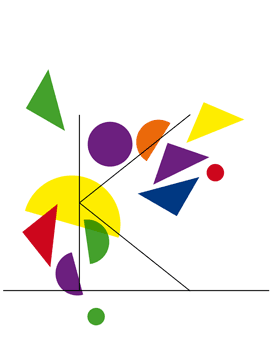The School of Kyiv: Karlsruhe Class. Lecturer: Alexandra Exter
Pavshyno Kunstverein: Informal Spaces and Artistic Practices in Western Ukraine
2 October–6 December 2015
Opening: 1 October, 7pm
Badischer Kunstverein
Waldstraße 3
76133 Karlsruhe
Germany
info [at] badischer-kunstverein.de
The School of Kyiv
Karlsruhe Class. Lecturer: Alexandra Exter
Zbyněk Baladrán, Ricardo Basbaum, Geta Brătescu, Robert Breer, Graciela Carnevale, Tamuna Chabashvili, Josef Dabernig, Anna Daučíková, Maya Deren, Alexandra Exter, Stano Filko, Till Gathmann, Judith Hopf, Zhanna Kadyrova, Grigori Kozintsev, Taus Makhacheva, Johannes Porsch, Sean Snyder, Hanna Sobachko, Iza Tarasewicz, Mikhail Tolmachev, Stas Voliazlovskyi, Anna Zvyagintseva
Pavshyno Kunstverein
Informal Spaces and Artistic Practices in Western Ukraine
Yaroslav Futymskiy, Vlodko Kaufman, Kinder Album, Open Group, Poptrans, Petro Ryaska, Lubomyr Sikach, Kostya Smolyaninov & “Group” collective, Yuriy Sokolov, Lubomyr Tymkiv
As part of The School of Kyiv – Kyiv Biennial 2015, Badischer Kunstverein presents an exhibition and a comprehensive accompanying programme. The exhibition will highlight the intertwined nature of the European art scene at the beginning of the 20th century, presenting a group show centred around Kyiv artist Alexandra Exter (1882–1949), while primarily showing contemporary works to illuminate the relevance of Exter for our time.
Alexandra Exter was a central figure in the Soviet constructivist avant-garde. Her work as painter, theatre and film set designer, dramatist, teacher, and proponent of progressive education has resonated well into the 20th century and far beyond the borders of Europe. Today, her influence is strongly echoed in a new generation of contemporary artists. The exhibition at Badischer Kunstverein is split into three sections which are intrinsically linked.
Emancipation, Ethnography and Abstraction: The School of Landscape centres around Exter’s pedagogical concepts, which she applied at a school she co-founded in Kyiv and above all as part of her work with a folk art collective in the village of Verbovka. In reference to these pedagogical ideals one group of the invited artists treats the artistic education of a local, often rural population, within the aesthetic concepts of the modernist avant-garde. These include the work of the Ukrainian-American filmmaker Maya Deren (1917–1961), Graciela Carnevale’s projects as a post-minimalist constructivist artist and political activist in Argentina and the work of the Russian artist Taus Makhacheva.
But the scope of Alexandra Exter’s work also encompasses a second aspect that was emblematic of the 1920s—the worship of technology as an integral part of the modern era. She designed the costumes for the first Soviet science-fiction film Aelita (1924). The section entitled Futurism, Technological Revolution, Irrationality and Science Fiction: The European School explores how the imagery of futurist expressionism has had a long-lasting effect on the aesthetics and how technological utopias and dystopias adapt its vocabulary to illuminate the revolutionary visions of the avant-garde in an affirmative or critical light. Instances of this include Stano Filko’s fantastic rocket-ships, made during the years of normalization in Bratislava following the Prague Spring, and Josef Dabernig’s new film Zlaté Piesky Rocket Launch (2015) which transfers the 1920s motif of technological revolution into the present-day use of drones.
The third section, Film, Object, Abstraction: The School of (Speculative and Political) Realism, is dedicated to the Soviet film with a special focus on the filmmaker Grigori Kozintsev (1905–73), a student of Exter’s. Here too, references will be made to another modern and contemporary art practice, whether in Geta Brătescu’s geometrical abstraction in Romania during the years under Ceaușescu, Judith Hopf’s object-based political art, or the films of Robert Breer (1926–2011), which in its reference to suprematism can be viewed as a silent protest against McCarthyism in America.
The concept of the “school” cannot be conveyed merely through objects on display; rather, it is best brought alive in practice. Ukrainian curators Lizaveta German and Maria Lanko will present Pavshyno Kunstverein – Informal Spaces and Artistic Practices in Western Ukraine, an exhibition organized around their project Open Archive, in the Waldstraßensaal. In conjunction with this exhibition, The School of Archives will take place in November, examining the historicization and institutionalization of art outside of the conventional art context. Theoreticians participating in the school include Yuriy Biley, Alexei Borisionok, Anastasiya Ryabova and Bohdan Shumylovych.
The exhibition display of artist Johannes Porsch links Kyiv, Karlsruhe, and Leipzig thematically and formally. A joint publication will follow the exhibition. The graphic design for the entire project has been developed by the artist and typographer Till Gathmann.
Curated by Hedwig Saxenhuber, Georg Schöllhammer and Anja Casser
Pavshyno Kunstverein is curated by Lizaveta German and Maria Lanko
In cooperation with GfZK – Museum of Contemporary Art Leipzig
Part of The School of Kyiv – Kyiv Biennial 2015
Co-organized by the Visual Cultural Research Center, Kyiv
For talks and events, please visit our website: www.badischer-kunstverein.de
Funded by the German Federal Cultural Foundation and by the Innovationsfonds Kunst of the Ministry for Sciences, Research and Arts Baden-Württemberg

